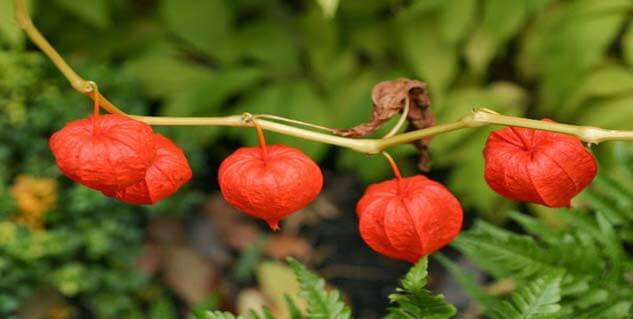What is the Best Ashwagandha Dosage?
People have been using ashwagandha for thousands of years as part of Ayurvedic medicine. But why do people take it and what’s the best ashwagandha dosage?
It turns out that ashwagandha has a number of uses and a number of forms.
Since the options available can be confusing, I wanted to put together a guide that would help you figure out how much ashwagandha to take, when to take it and why.
Ashwagandha Powder Dosage vs. Ashwagandha Extract Dosage
You’ll usually find two forms of ashwagandha available. It’s either available in whole herb form, such as a ground up powder, or in extract form, such as in capsules. The extracts are a more concentrated form of the herb, so you won’t need to take nearly as much as you would in another form.
The traditional way to prepare ashwagandha is by steeping two teaspoons (about six grams) of the root’s powder in three cups of boiling water. Let the powder steep for about 15 minutes then strain to remove any solids. Drink 1/4 cup of the tea twice a day.
Another way to prepare ashwagandha is to stir two teaspoons of it into 1/2 cup of ghee, or clarified butter. You can add a bit of date sugar to the butter mixture to sweeten it.
To take the ashwagandha, stir 1 teaspoon of the butter mixture into a glass of warm milk and drink.
Taking capsules that contain ashwagandha extract is often the easiest way to get the benefits from the herb. If you are going to take supplements, 300 mg per day is usually the minimum recommended dosage. Depending on why you are taking it, up to 6,000 mg per day might be the optimum dose for you.
Ashwagandha Dosage for Anxiety

One of the main uses for ashwagandha is to ease stress and anxiety. Since it’s an adaptogen, it helps the body learn to cope with the stresses of daily life. When used to help ease stress and anxiety, the recommended ashwagandha dosage is at least 300 mg, one or two times a day.
Several studies have examined what happens when people take ashwagandha versus a placebo. A study from 2012 involved 64 people who had chronic stress. Half of the group took one capsule that contained 300 mg of high-concentration full-spectrum extract ashwagandha root twice daily. The other half took a placebo.
After 60 days, the people in the group that took the 300 mg of ashwagandha twice a day had considerable improvement in their stress levels.
Most notably, the people taking ashwagandha had a considerable drop in their cortisol levels. As you might know, cortisol is the hormone responsible for making you stressed out.
According to Dr. Josh Axe, ashwagandha’s effects on the thyroid and adrenals positively affects our stress levels. He also notes its ability to reduce anxiety and depression.
Ashwagandha Dosage for Energy and Muscle Strength

Another benefit of ashwagandha that interests me is it is capacity for boosting muscle strength and improving athlete’s endurance.
Can taking ashwagandha make you a better athlete, and if so, how much do you need to take? The answer is a resounding yes!
In a study conducted in 2012, a group of 40 elite cyclists in India were divided into two groups. One group was given capsules containing 500 mg of ashwagandha twice a day. The other group took a placebo twice a day. Both groups took the pills for eight weeks.
Before the study began, the athletes took a treadmill test. The test measured their aerobic capacity, their respiratory exchange ratio and how long it took for each to reach total exhaustion.
At the end of the study, the placebo group didn’t show any improvement when they took the treadmill test again. But the group taking the ashwagandha pills showed an improvement in all areas of the test, most notably in the time it took them to reach exhaustion.
Okay, you might be thinking, but those were professional, high level athletes. Can ashwagandha help improve strength and energy in non-athletes?
Another study from 2015, examined the role ashwagandha played in helping boost muscle strength in a group of non-athletic young men. Half of the group of 57 men took 300 mg capsules of the herb twice a day for eight weeks. The other half took a placebo pill.
After eight weeks, the researchers measured muscle strength, recovery, muscle size and body composition in all the men. Those in the ashwagandha group had considerable increases in their muscle strength, size and recovery.
Ashwagandha Dosage for Thyroid
As mentioned above, ashwagandha has a positive impact on the thyroid. Adaptogenic herbs like ashwagandha help restore balance in the body’s hormone levels. That means that if you have either an over or under-active thyroid, supplementing with ashwagandha can help balance it out.
Studies have examined how ashwagandha affects thyroid levels in both humans and in mice. Although those studies don’t recommend a specific dosage for thyroid care, Dr. Axe suggests taking 500 mg up to twice a day to see an improvement in your thyroid function.
Ashwaganda Dosage for Sleep
Several noted medical professionals have written about the effects that ashwagandha can have on one’s sleep. Ashwagandha improves circadian rhythms and ensures that you get a truly restful sleep.
According to Dr. Weil, it is a viable option for those afflicted with insomnia and one that pairs well with Valerian root and melatonin as a sedative herb. He recommends users take 500 milligrams of an ashwagandha extract standardized to 2.5-5% with anolides.
Ashwagandha Dosage for Cancer Patients

Ashwagandha can help improve the quality of life of people undergoing treatment for cancer. Most notably, it can help reduce the fatigue that often occurs during chemotherapy.
A 2013 study involving 100 women with breast cancer gave very high doses of ashwagandha (2 grams every eight hours) to half of the group. The other half didn’t receive any ashwagandha. All 100 patients were receiving chemotherapy.
The women who took ashwagandha while receiving chemotherapy reported much lower levels of fatigue during treatment. Also worth noting is that 72% of the women in the ashwagandha group survived after 24 months, compared to 56% of the control group.
Based on the research and studies, it seems that between 300 and 500 mg of ashwagandha once or twice a day is the best dosage to start off with. I’ve personally found that the capsules available from Amazon have helped me feel more at ease and less stressed in my daily life.
In Closing
What about you? Have you tried ashwagandha? If so, what dosage helped you?
[catlist excludeposts=this template="div" conditional_title_tag="h6" conditional_title="More on using Ashwagandha" id="354" tags="using"] [catlist excludeposts=this template="div" conditional_title_tag="h6" conditional_title="Supplements for anxiety" tags="for-anxiety" exclude_tags="getting-high"]

